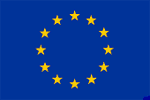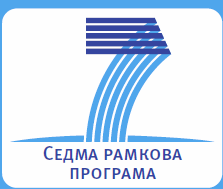EU-WISE
|
|
 |
|
EU-WISE project is co-financed by 7 FP- EC with a total budget of 2,9 million euro. Partners form 6 countries and 7 organizations will investigate opportunities, resources and changes in health care systems in national context.
The overall aim of this project is to offer a deeper understanding of the different mechanisms involved in the management of chronic conditions with a specific focus on how initiatives are translated and embedded into the illness management practices in peoples’ everyday life. It is in work, domestic and community settings where these practices are shaped by the emotional, symbolic, ethical, economic, and institutional inter-dependencies that people have with intimate and distant others, and where personal health is constantly negotiated in relation to one’s own well-being and the health and well-being of others. Framed this way, questions related to self-care practices and changes in health behaviours can be stated as a shift in emphasis to a broader agenda for the provision of healthcare. Such an agenda brings into view ideas dominant in academic and policy debates and discussions of self-management which has drawn attention to the limitations of deploying a ‘one size fits all’ approach and the need to devise and implement workable, personally sensitive strategies for self-management and behaviour change that make full use of available technologies (e.g. eHealth, telehealth, virtual networks), personal, community and institutional resources, and which more adequately addresses the needs of socially disadvantaged people.
Thus, the current focus on individuals (e.g. understanding and improving their knowledge and capabilities) requires a complementary focus on understanding capabilities, resources, and change in health related practices as an integral part of peoples’ social networks and as being co-shaped by wider determinants of health). There is also a need to focus on the translation of efforts within health services to explore how professionally defined priorities of chronic illness management are translated acted upon and resourced outside of the consultation.
List of partners:
- University of Manchester (UNIMAN), Great Britan– Professor Anne Rodgers, consortium leader
- University of National and World Economy, Bulgaria (UNWE)– Professor Elka Todorova,
- University of Navara, Spain (UNAV)– Dr. Maria Carmen Portilo,
- University of Oslo, Norway (UniO) – Professor Christina Foss,
- University of Crete, Greece (UoC)– professor Christos Lionis,
- Stichting Kattholieke University, Nietherland (RUNMC) – Professor Michel Wensing,
- Fundation for education and social studies, Spain (EHSF) – Dr. Manuel Serano

